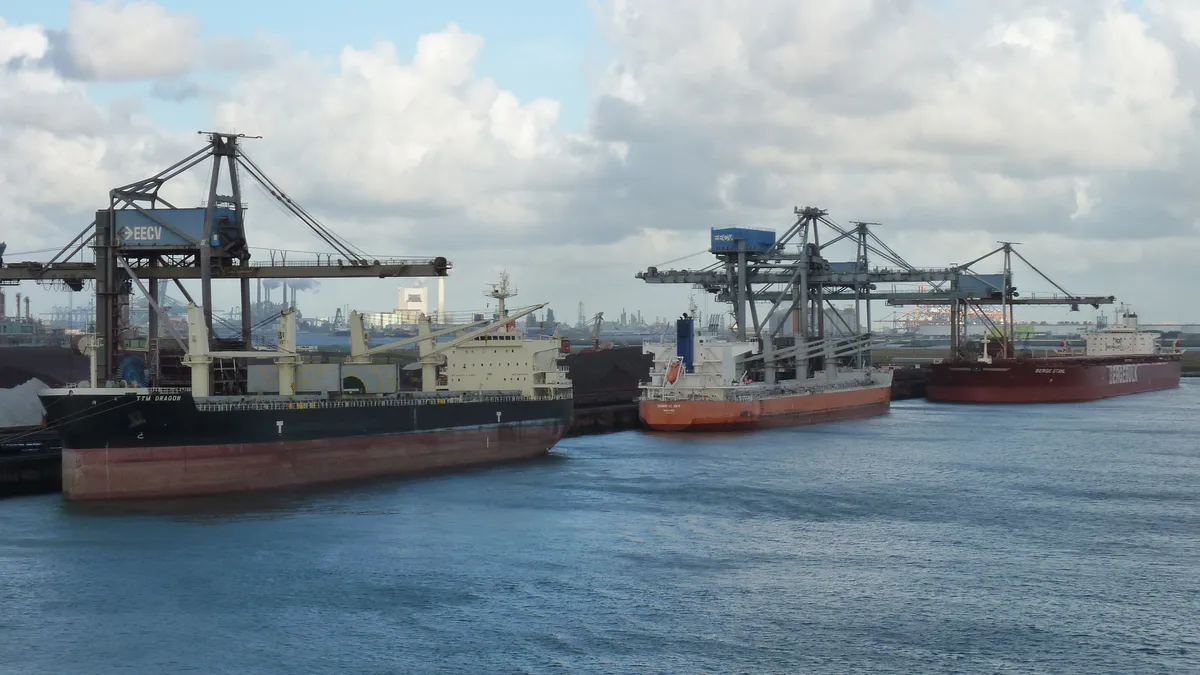Dive Brief:
- A new app from the Port of Rotterdam, called Pronto, will reduce waiting time by 20% for the 30,000 vessels it receives yearly, the port said in a press release.
- Pronto's dashboard allows shippers and terminals to monitor developments and make necessary adjustments. A timeline specifies every event the vessel will be involved in during its port call, from arrival through departure.
- Port congestion is a global problem that creates serious repercussions throughout the supply chain.
Dive Insight:
The International Chamber of Shipping estimates 90% of global trade is carried by sea. With that much traffic arriving, unloading and departing from the world’s ports, congestion is almost inevitable.
Ports quite often have limited docking space, and with the size of today’s ships, capacity can be strained. Vessels line up and wait, many times in an anchorage at sea, until they’re able to access the port.
The waiting ships are using up fuel, and goods that need to be off-loaded for further transport aren't going anywhere, setting off a logistics chain reaction as trucks and rail scheduled to receive those goods also sit idle. End-users who rely on on-time deliveries will be forced to scramble to meet their needs and, more important, their customers’ needs.
Pronto's app is designed to make more effective use of capacity at the terminals while also coordinating vessel services, such as bunkering (storage of fuels fueling services), maintenance and provisioning of ships. When a vessel’s estimated arrival time is known, it is assigned a timeline within Pronto. The timeline specifies every event the vessel will be involved until its departure.
As Europe’s largest business port, and a primary destination for goods from Asia, Rotterdam includes one fully automated, technologically advanced terminal that can handle today’s megaships and their capacities of up to 20,000 twenty-foot-equivalent Units (TEUs).
However, the app alone won’t solve the congestion problem. For example, barge operator Contargo has told its customers there is a waiting time of 12-72 hours at Rotterdam and it would be adding a €19.50 per container (full and empty) surcharge to shipments. The operator said it had identified four causes for the congestion: larger ocean-going vessels, limited handling windows for inland operations, additional seaport terminals and growing numbers of feeder vessels.
Port congestion is a global issue. Rotterdam has taken a first step with its app, but much more remains to be done.












